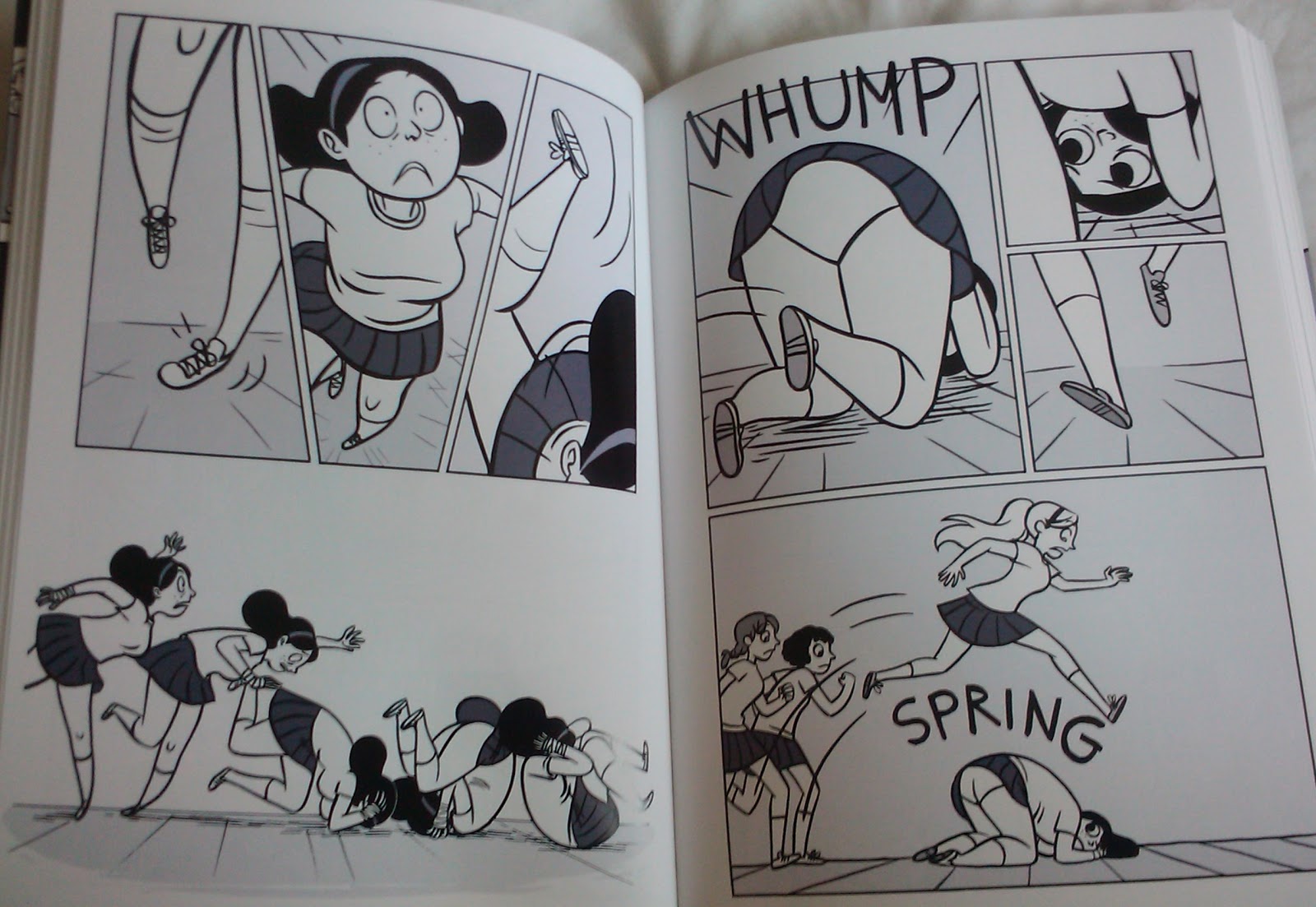
And best of all, neither book comes off overly preachy in their lessons, which is always nice for stories that contain overt morals at book’s end. Both works, in the end, admonish the reader that fitting in isn’t the be-all, end-all of human-let alone high school-existence. Both books speak gently to the threat of alienation, to the social stigma attached to not fitting in. While Yang’s protagonist gets a perm and imagines himself white, Brosgol’s Anya is determined to be assimilated. In a lot of ways, Anya’s Ghost explores the same cultural experience Gene Yang looks at in American Born Chinese, the barrier between being true to our own identity and being accepted by the world around us. Sometimes that means shortening an obnoxiously difficult-to-pronounce last name and sometimes it means forsaking the other kid from your country who hasn’t quite overcome his eager-foreigner tendencies yet. (Apparently dressing like someone who can put together a plausible outfit is not something immigrants can naturally accomplish?) She’s also embarrassed by her native culture and goes to lengths to distance herself from that which will mark her as Foreign. She’s overcome her accent, acclimated to the cultural diversity of young American life, and doesn’t dress like someone who’s just discovered clothes. She herself is an immigrant and by her word we learn that she’s worked very hard to compensate for her inauspicious country of origin. She’s a typical teen from an immigrant family.

In the first place, Brosgol works hard to make Anya a character who very easily could be weird or strange or unwelcome but isn’t.

Life Lesson #1: Don’t fall down pits in the park. So really, the joy is in the details of how the story all works out rather than in the genius of any of the three parts on their own. A girl named Anya, high school shenanigans, and, of course, a ghost. Anya’s Ghost, as one may have guessed by now, is about three things.

There are even moments when I found myself gleefully surprised at a direction in which Vera Brosgol would choose to take her story. Thankfully, Anya’s Ghost avoids most of the usual traps of the form.

There are always a few works of the genre that don’t play to cliché. Maybe it’s different in other schools around the country, but according to my experience in Orange County circa 1990, school-based YA lit just doesn’t ring true. It’s more just that I never felt as if I couldn’t, if I had wanted to, talk to someone and have them not snub me outright. It’s not as if I wasn’t kind of nerdy or kind of artsy or kind of freaky. Or maybe there were but I was just too blissfully ignorant to notice. When I was in high school, there wasn’t a lot of bullying.


 0 kommentar(er)
0 kommentar(er)
